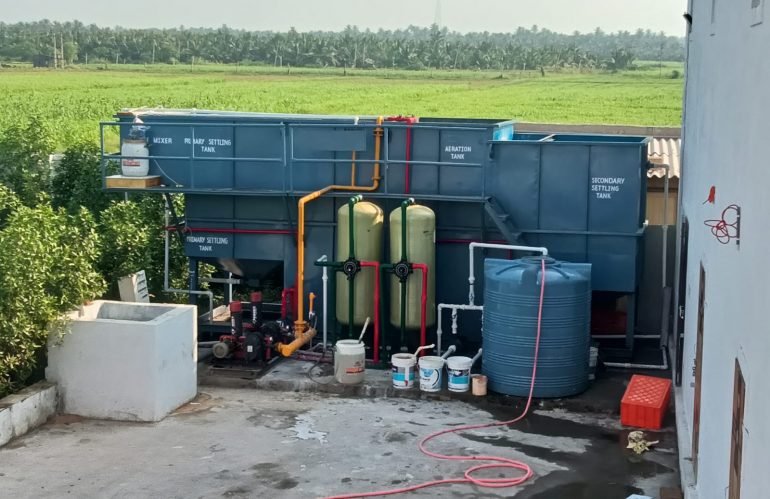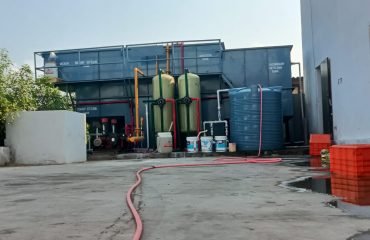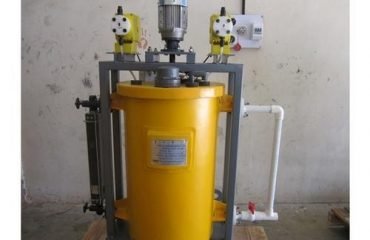Dombivli, a bustling suburb located in the Thane district of Maharashtra, has been witnessing remarkable growth and urbanization in recent years. As the population expands and urban infrastructure develops, one critical aspect that demands attention is the management of wastewater. Sewage Treatment Plants (STPs) have emerged as essential components of Dombivli’s infrastructure, playing a pivotal role in maintaining environmental sustainability while supporting the area’s burgeoning urban lifestyle.
Understanding Sewage Treatment Plants
Sewage Treatment Plants, commonly referred to as STPs, are specialized facilities designed to treat and purify wastewater generated from residential, commercial, and industrial sources. These plants employ a combination of physical, chemical, and biological processes to remove impurities, contaminants, and harmful microorganisms from sewage, rendering it safe for discharge into the environment or potential reuse. STPs are fundamental in safeguarding public health, preserving natural ecosystems, and promoting sustainable urban development.
The Importance of STPs in Dombivli
Several compelling reasons underline the significance of Sewage Treatment Plants in Dombivli’s journey towards sustainable growth:
- Population Expansion: Dombivli has experienced a substantial increase in its population due to its proximity to Mumbai and improved connectivity. With a growing number of residents, the volume of sewage generated has surged. Efficient wastewater treatment through STPs is indispensable to meet this rising demand and ensure the well-being of the community.
- Industrial Activity: The suburb hosts a variety of industrial units, contributing significantly to the local economy. However, industrial wastewater can contain pollutants that harm the environment. STPs play a crucial role in treating industrial effluents, preventing water pollution, and supporting industrial development in an eco-friendly manner.
- Environmental Conservation: Dombivli’s environment includes natural water bodies and green spaces that need protection. STPs play a vital role in treating wastewater before it is discharged into these ecosystems, ensuring their preservation and preventing contamination.
How STPs Function
Sewage Treatment Plants operate through a well-defined process that efficiently treats wastewater. Here is a simplified overview of the typical STP operation:
1. Primary Treatment
The primary treatment phase involves physical processes like screening and sedimentation to remove large solids and debris from the sewage. This initial step reduces the organic load on subsequent treatment stages.
2. Secondary Treatment
Secondary treatment employs biological processes where microorganisms break down organic matter present in the sewage. This step significantly reduces the biological oxygen demand (BOD) and chemical oxygen demand (COD) of the wastewater.
3. Tertiary Treatment
Tertiary treatment is an advanced stage that further polishes the effluent to meet stringent quality standards. It may involve processes like filtration, chemical treatment, and disinfection to remove any remaining impurities.
4. Discharge or Reuse
The treated sewage can be safely discharged into nearby water bodies, adhering to regulatory guidelines, or utilized for non-potable purposes such as irrigation, landscaping, or industrial processes.
Advantages of Sewage Treatment Plants
STPs offer numerous benefits for Dombivli and its residents:
- Environmental Stewardship: By effectively treating wastewater, STPs ensure that Dombivli’s environment remains clean and free from pollution, contributing to the well-being of both people and nature.
- Resource Efficiency: STPs promote the responsible use of water resources by recycling and reusing treated wastewater, reducing the demand on natural water sources.
- Sustainable Development: The presence of efficient sewage treatment facilities supports Dombivli’s growth by providing a clean and healthy environment, fostering economic activities, and enhancing overall quality of life.
In Conclusion
Sewage Treatment Plants stand as vital pillars in Dombivli’s journey towards sustainable urbanization and environmental preservation. They play a central role in safeguarding public health, supporting industrial growth, and conserving precious water resources. By prioritizing efficient wastewater management, Dombivli can continue to thrive as a rapidly growing suburb while ensuring a cleaner, greener, and more prosperous future for its residents.





